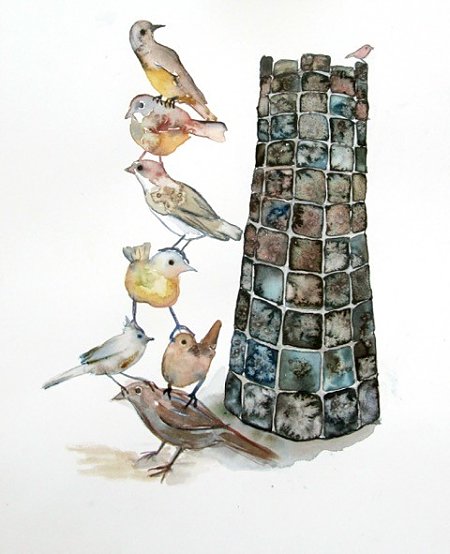
That Arab Spring
“I know.”
“She’ll change her mind. She always does.”
A hum of quiet, followed by the echo of some other voice, maybe Arabic, and then a hollow, longdistancey laughter.
Finally, “Still there?”
“This is different,” she says.
“Different?”
“This is different.”
“This is what the doctor says?”
“This is what I say. You may want to hurry.”
“The doctor said that?”
“I say.”
“I’ll get the next flight.”
Once done, I call Sarah, the travel agent, who knows my name, my credit card, but not me. She listens and says it will be expensive. “These last minute flights always are.” She offers me a small wait, expecting me to reconsider, to change my mind, to say, “Really?” or “Forget it.” Her waiting finished, she gives me one last chance before clearing her throat and not saying, “Don’t blame me when you hear this next part about cost.” Sarah tells me the total, and when I say fine she seems disappointed.
I try to leave the next day, in the morning, but by the time I reach the airport one of those sandstorms has rolled in, the kind you can see coming a long way off, crawling over the desert like some fantastic behemoth. And, of course, there is a delay, and like hundreds of others I watch from the vast airport windows as day turns to twilight and then night and back to twilight. Finally, as if it’s had enough and needs a drink, the sand takes a right turn toward the Gulf, and, like a magic, the crisp blue sky is back. On the plane, I sit behind a fifty-something man whose hair is dyed an orangeyellow. For thousands of miles, I watch him pet, comb, and pamper his hair.
When I arrive, I smell of airplane. I set my suitcase just inside the front door and quietly walk up to the hospital bed that has been rented for two months. Everything is aimed toward the TV. A talk show is on, and when a red-haired woman laughs, pointing to her head, the other three women sitting on the talk show couch laugh with her. There is no sound, no volume, just the four women open-mouthed laughing, and I wonder what can be so funny about pointing to a head. But then I stop to look down at her, and although I can only see her bed-flat profile, these are not the forehead and nose I remember. Edging closer still, this is not the mother I remember but somebody else, smaller, drier, whiter, not even all woman. Somebody’s idea of a bad joke just to get me to come all this way? When I move up alongside her bed, her eyes are shut tight and she is frowning. I think this cannot be sleep. I whisper, “How are you feeling?” I clinch my teeth and look down at my shoes. There has to be something bigger and better to say, anything but “How are you feeling” when she’s dying. She hasn’t moved, hasn’t stopped frowning. When I glance over at my sister, she encourages me with her eyes and then helps by saying, too loudly, “Look who’s here.” The words take a moment, but finally she blinks and slowly begins to unfrown; as she turns to see, I lean closer, dentist close. She sees and remembers, grinning, the green tubing neatly nestled in her nostrils, hissing. Over the days, this will become a common scene: people bending over to say, “Hi, how do you feel,” jarring her out of a haze, a soft blur that is almost sleep, and she will blink up into faces she doesn’t recognize but say, “Hi” or “Fine.”
“When did you get here?”
“Now, just now.”
